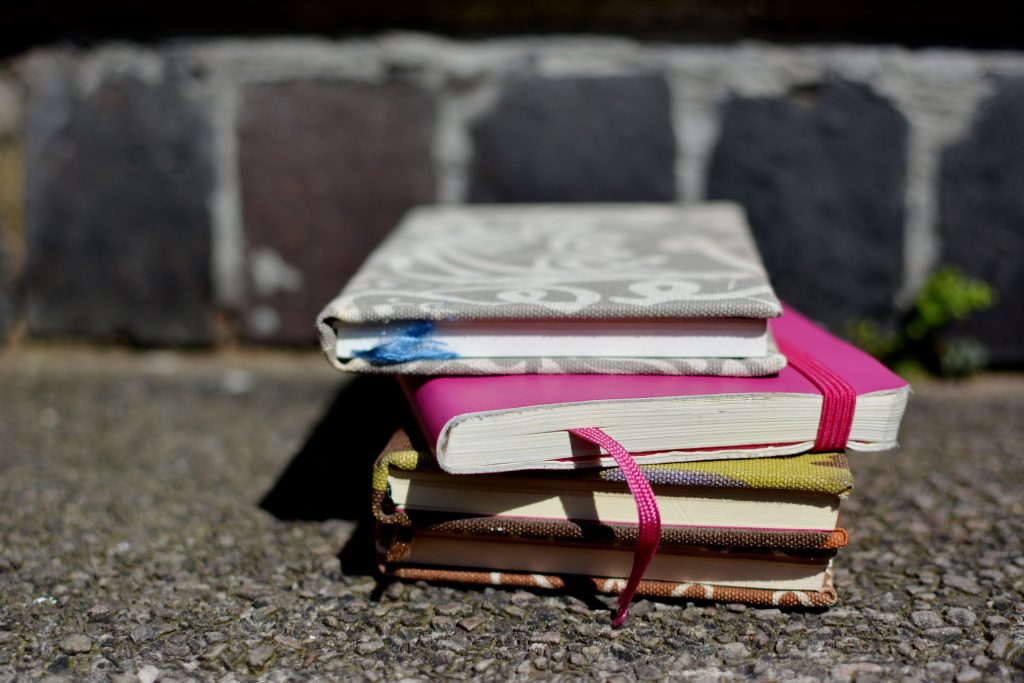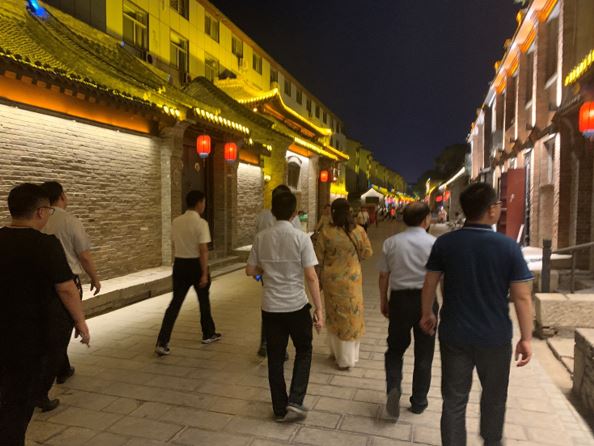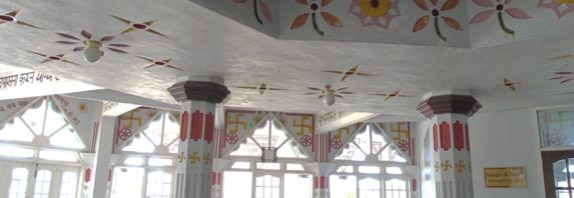The blog post is an effort at honest reflection of the personal side of conducting field research. Using private notes from my field diary, I sought to convey the contradictory emotions that my recent experience with fieldwork had triggered. The article highlights the insecurities, stress, and anxiety that get otherwise overshadowed by my own understanding of fieldwork as both personally and professionally enriching and constitutive experience. In this article, I reflect upon my fieldwork in Tunis where I spent two months between October and December 2016, interviewing politicians, civil society representatives, experts and journalists about the constitution-making process that followed the 2010/11 uprising, writes Tereza Jermanová.

I research politics. In my doctoral thesis, I study the extraordinary events of the Tunisian and Egyptian revolutions that started in December 2010 and January 2011 (respectively) and the processes of writing new constitutions that these upheavals brought about. I interviewed mostly politicians, but I also spoke to journalists, activists, scholars, and other specialists from these two countries. Back in England, I now read through piles of my notes, documents that I copied while in Tunis, articles and books published by others, and listen through hours of interview recordings, trying to make a sense of all my data, reflect, tell a story, and write it down. I tend to think about this stage of research cycle as less exciting than fieldwork; in words of Mock Turtle and Gryphon, characters from Alice in Wonderland – ‘Explain all that,’ said the Mock Turtle. ‘No, no! The adventures first,’ said the Gryphon in impatient tone: ‘Explanations take such a dreadful time.’
I prefer fieldwork.
I enjoy fieldwork because that’s when politics reveals itself to me more naked, tangible, giving me the sense that if I stretch my fingers just a little bit further, I would touch it. My work feels for some reason more real there than when I sit at my desk. When I’m in the ‘field’ (how strange that word is anyway…), my thoughts click, and problems that I couldn’t solve for months become immediately obvious. There’s more into fieldwork when I strip the layers down from my professional (or rather the more reasonable) to my selfish self. A side of me feels that just being there is an achievement of something (you’re chasing an experience that others might not have) and it makes me more interesting, and it is indeed interesting, exciting, adventurous, meeting new people, learning new things, living that life. Those who come back from fieldwork
have the aura of people who did something real. The everyday uneasiness of things then gets covered under personal satisfaction that at the end, I’ve managed – gathered interesting insights, met the people that I planned to, survived the loneliness of a new place, handled it without long lasting psychic consequences…
But then, when I was skimming through notes from my last research trip – searching for details on interviews that might have slipped my mind – I accidentally stumbled upon these exact words, which I had scribbled in my small pink notebook (in Czech, my mother-tongue) last November, almost a month into my fieldwork in Tunis.
So I’m here for a month and it’s so intense, mostly emotionally. You feel like you can’t make it, that you don’t know enough… I do one interview and it’s all great, and then another one and it’s not. It’s like up (a lot up) and down (really down). A feeling of success that I made an appointment with someone important, as if that, on its own, would make the fieldwork successful. A bit superficial. And then you learn – again – that things are more complicated. Someone else doesn’t pick up the phone, another one can’t meet up or cancels, and suddenly, a slump. Thinking whether these interviews are important at all, perhaps I should read more instead. But then there’s the level of thinking, of ideas, which is so intense here. Yet it’s hard to keep it going, in a reasonable way, when there’s this much. And then, I’m here alone. It is all so physical, the fear of dialling a new phone number, will they be congenial? Fear of my French. Will they come to our appointment?… The intense experience of the interview itself. And then the absolute exhaustion. The feeling that I should transcribe the interview, but that I terribly don’t want to, I want to sleep, but I have to prepare for tomorrow’s interview… So much pressure at the same time, and a worry whether I will be able to finish everything in time, stomach ache.
And I concluded: I should make these notes more often.
The note above was meant for myself, not for the thesis, not for others to see. A note that would help me remember the strange blend of feelings (I wrote “fieling”, initially) that fieldwork brings to me, and could – hopefully – make my next experiences with it more bearable (not necessarily because I’d learn from it, but because I’d know that “I’ve been there already and survived”). But then I thought perhaps similar emotions could have occurred to someone else, or that others might be curious about some of the contradictory sensations and insecurities that fieldwork may trigger. What follows are personal fieldwork fragments: sketches, sometimes reflections, but mostly an (almost) free flow of associations that appeared as I was staring at my forgotten notes. I wrote it with no attempt at solving the issues that I raise, nor to analyse them in their entire complexity. Well-aware that others venture on more difficult fieldworks, face more challenging circumstances, and perhaps engage themselves more, on a personal level, with the matters they explore.
A few days after the first note, sitting in an office of a local NGO and killing time while waiting for my interviewee to arrive, partially in a relief and partially because I realised how absurd I was, I put down:
No one cares about the colour of my notebook. It is a non-issue : )
The statement somehow encapsulated and at the same time mocked my worries about being taken seriously by my interview partners (mostly high-ranking politicians and older men), worries that I cultivated both before and during my fieldwork. That I looked (and, I guess, was) too young, that I was a girl, worries about my clothes not being serious enough (or too serious?), and about the kind of signals my pink notebook would send. I knew these worries were ridiculous long before the afternoon when I wrote this memo, but owning this knowledge didn’t prevent them from coming back, draining my confidence.
I still remember from reading an interview with one of my scholarly role models during my undergraduate years that to ‘gain’ real insights, one had to crack the uneven power dynamics pertinent to elite interviewing (where power otherwise rested with the interviewee) by lucidly offering own – valuable and informed – comments. I dropped this approach long time ago; reading about various interview techniques and talking to colleagues helped, but it was the confrontation with reality that was decisive. I would sometimes be several generations younger than the experienced politicians I talked to, a girl. In that context, my own insights and their credibility in eyes of my interviewees would differ from those of a world-renowned scholar. But somehow the issue of seriousness kept chasing me. During a research trip to Cairo a few years ago, I would even switch a ring I got from my mom for birthday from right hand to the left, putting it on the ring finger (this had also a practical reason: it spared me from questions about my marital status by both my interviewees and strangers). I realised then how ridiculous I was and, yet, kept moving it indecisively from one finger to another during long cab rides through the jammed city, depending, ultimately, on how I felt on the continuum of insecure-confident that day.
It was actually the size of my notebook, not its colour, that mattered to me on a daily basis when I was in Tunis. The pink notebook I bought before leaving England was too small and when I rushed to capture what my interview partners said (in a confused invention of English-French-Czech-Arabic language), I had to turn pages too often and lacked space to expand my scribbles, as with the increased speed of note-making the letters and words I wrote grew larger. Still, when I finally run out of pages and stopped in a bookshop to get a new one, I picked up a larger one with a blue, more serious-looking cover.
Another piece of memory from my last research trip surfaces as I write, sharp as a photograph. Almost every day, I went to the shore and stared at the sea in the posh neighbourhood of Tunis where I lived, hopeful that it would calm down my anxiety, as sea does. But, as much as I sought to stare at the sea, I couldn’t see it. My mind was preoccupied with complex thoughts and ideas that occurred in a melange of all the languages more or less familiar to me. They kept racing in my head, demanding attention. And I fancied to think them through, to make a hasty note of them, to remember the intensity with which ideas connect during fieldwork. I couldn’t resist. No matter how weary it left me.
I was in the middle of some manic days when I wrote that first troubled note, days marked by phone calls, running between interviews, and the questioning of my own ability to do research (the I will never be able to understand all this! screamed at my computer screen when Skyping with my partner miles away). All these came after another stressful period – settling in. My accommodation got cancelled the day I arrived in Tunis, and instead of arranging interviews, I spent hours searching for a room, blessed to have friends who let me sleep on their couch in the meantime. The second month of fieldwork then introduced a new source of panic. Like with a magic spell, my contacts stopped returning my phone calls, phone numbers I dialled were non-existent (Désolé, le numéro…), politicians busy with important investment conferences, or not remembering our appointments. For almost three weeks.
It also tells me that sometimes fieldwork is slow, no matter how you try.
I wrote these words four days before leaving Tunis, still waiting for people to call me back, and the note’s consoling tone surprises me in retrospect. (Though I didn’t forget to remind myself I always can work harder: Of course, I could have tried more, but still I’ve done quite a lot of effort.) All eight of them eventually contacted me, which made for a rather busy farewell.
The last sentence at the back of my little pink notebook is a lesson learned: I should remember not to be too stressed when I come for fieldwork next time – the stress at the beginning was not necessary. This is obvious to me in hindsight. Fieldwork, as the word itself reveals, is just work, and so it shouldn’t be a cause of too much of too existential questioning and distress. I knew this when I was there, yet it didn’t make the conflicting emotions go away. Maybe I even didn’t want them to; to let go of the unique (if uneasy) perspectives and sensations. It might be that such a level of engagement is necessary for quality fieldwork, but it might be equally true that it is not. It’s a complicated relationship.
Acknowledgement
I am thankful to Jack Copley, Naeem Inayatullah, Aya Nassar, Dan Öberg, Hyun Bang Shin, Vojtěch Strakatý, and Erzsébet Strausz for their time and comments. The field research was supported by the Marguerite Ross Barnett Fund.
About the Author
Tereza Jermanová is a doctoral candidate at the Department of Politics and International Studies at the University of Warwick. Her research interests lie at the intersection of the study politics of the Middle East and North Africa and the comparative politics scholarship, and include themes of democratisation, constitution-making, and qualitative methods. Her doctoral thesis explores the role of the design of constitution-making processes during democratisation through a comparative analysis of Egypt and Tunisia after the 2011 uprisings.
For citation: Jermanová, T. (2018) Little pink notebook, or fragments of my manic fieldwork adventures. Field Research Method Lab at LSE (8 February 2018) Blog entry. URL: https://blogs.lse.ac.uk/fieldresearch/2018/02/08/little-pink-notebook/






2 Comments